(915) 584-5728
[email protected]
403 Frontera Rd. El Paso, TX 79922
Parent Portal
Mission & Philosophy
Montessori Education in El Paso, TX
Mission & Philosophy

Mission
Montessori Education in El Paso, TX creates a holistic and multicultural community by following the Montessori philosophy. We guide children through various stages of development and promote education that fosters peace. Our lush green environment ensures that our community remains in constant contact with nature.
Vision
Knowing that each human being is born with individual potentialities, at Mt. West Montessori, we provide prepared environments that offer tools and opportunities for self-construction, for the discovery of the unique role through which each person will serve their community, society, and the world. Our values are based on respect, love, freedom, creativity, commitment, solidarity.


Philosophy
Mountain West Montessori’s educational philosophy emphasizes holistic development and a passion for learning in each child. We use a child-centered approach, tailoring education to fit each student’s needs, interests, and pace. Our thoughtfully designed environment encourages self-directed, active learning, allowing students to explore and discover in a respectful and engaging setting. By focusing on intrinsic motivation and individualized instruction, we support the development of critical life skills and foster collaboration within our community. Our goal is to inspire a lifelong love of learning and empower each child to reach their full potential.
Natural Spirituality
Maria Montessori saw a unique spark in children that she believed could transform the world. She recognized that children are inherently good and, if allowed to develop naturally, form a deep connection to their environment and society. Children who progress through stages at their own pace develop a strong sense of care for others and their surroundings. Montessori’s philosophy suggests that children have inner guides leading them through cognitive, social, and psychological tasks as they mature. Adults should nurture this inner guide and respect each child’s individual pacing and interests.
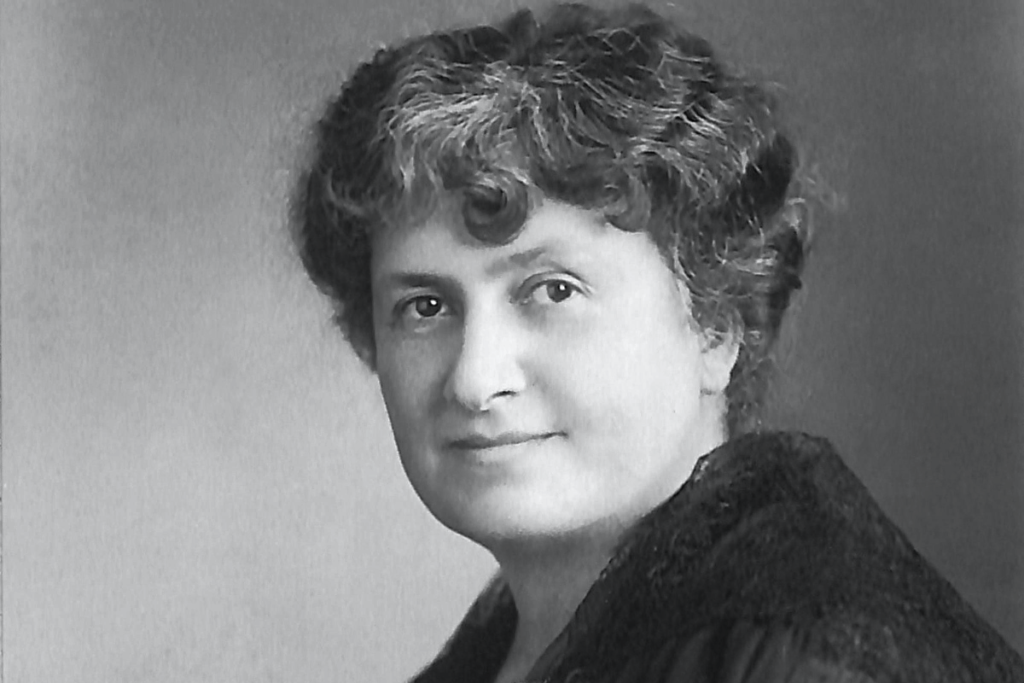

Order and Structure
Order plays a crucial role in the lives of young children. It involves assigning a specific place for each object, helping children understand where items belong, and encouraging them to return objects to their designated spots. This sense of order creates a secure environment, allowing children’s brains to feel safe and facilitating learning and development. The Montessori classroom blends structural security with freedom of expression, offering a holistic education for both body and mind.
Developmental Phases
Mountain West Montessori Education in El Paso, TX identified cyclical phases of development in children, including periods of seeking order, refining senses, acquiring language, developing movement, experimenting with small objects, and participating in community life. As children transition between stages, they experience heightened sensitivity and rapid learning. Recognizing these phases allows adults to guide children effectively, taking advantage of their accelerated learning. Montessori Guides (teachers) are trained to be sensitive to these creative periods, offering support while allowing children to pursue their interests at their own pace.
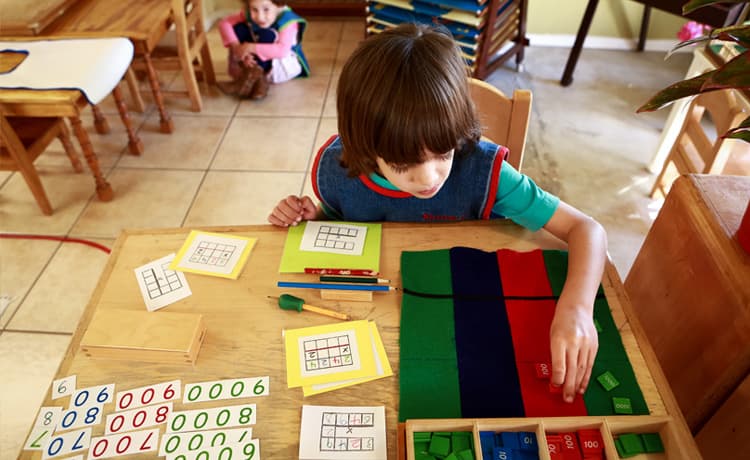

Children Learn Through Their Senses
Montessori designed materials and curricula to enhance sensory development because children learn about the world through physical experiences. These sensory materials align with how children learn. Montessori believed that children are drawn to beautiful objects, so the materials combine aesthetics with functionality. The enduring success of Montessori’s designs worldwide demonstrates the accuracy of her observations. Mountain West Montessori proudly uses materials found in Montessori schools around the globe.
Children and Culture
Montessori emphasizes the freedom for children to work independently and pursue their interests, but she also acknowledges the importance of social development. She believed that freedom helps children develop genuine concern for others. When children progress at their own pace, they achieve internal harmony that extends to their interactions with the world.
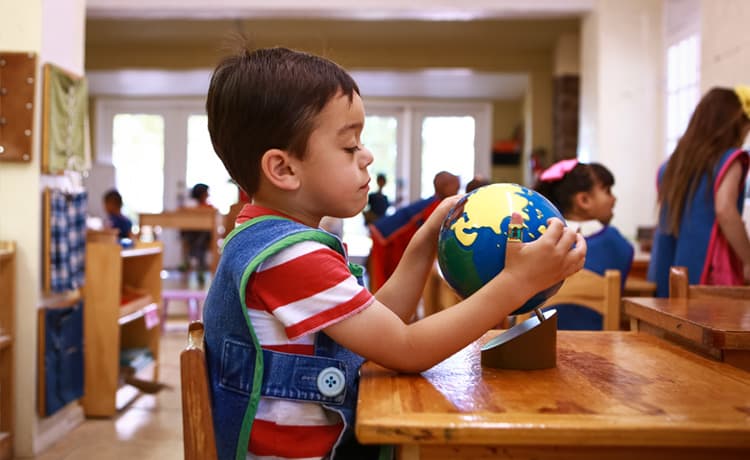
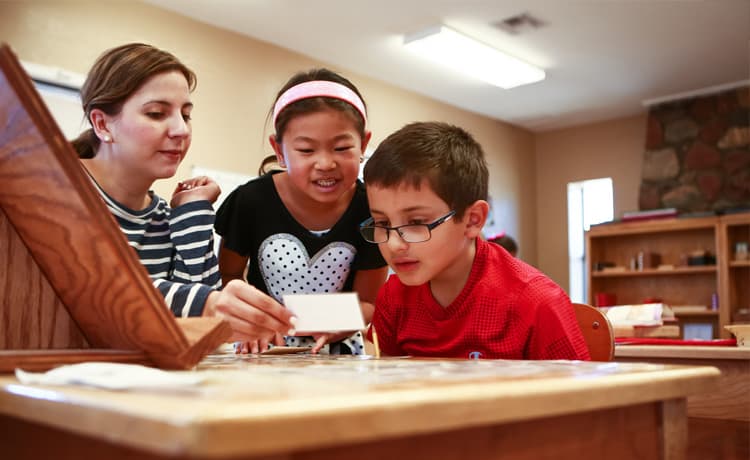
Big Teachers
Montessori referred to her teachers as Guides, highlighting their role in steering students according to their individual learning rhythms. Guides must be acutely aware of their own emotional, social, and mental processes to understand and observe their students’ developmental stages. Montessori envisioned Guides as more like psychologists than traditional teachers, as the success of her schools relies on their ability to sensitively observe and direct children’s emerging energies.
Little Teachers
Montessori observed that younger children naturally learn by watching and listening to older peers. Children learn and retain knowledge best when they are part of a supportive, collaborative community. Montessori schools encourage children of varying ages to work together as an inclusive social group.
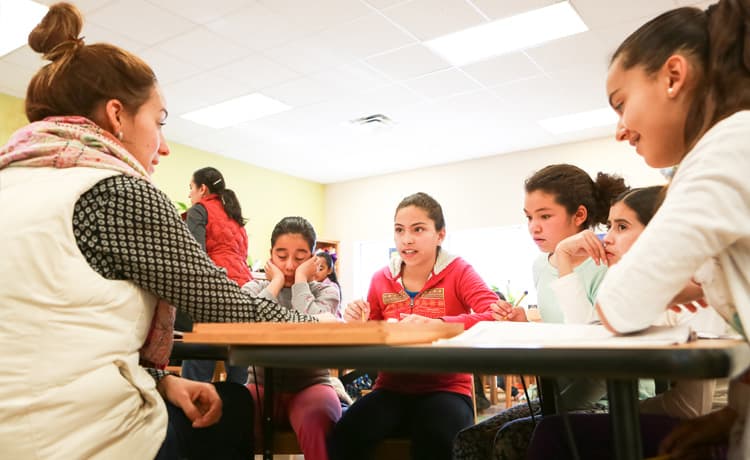

Children Are Natural Learners
Montessori argued that when children follow their natural biorhythms and interests, they experience significant improvements in happiness, self-confidence, and self-discipline. Unlike adults, children work for the joy of the process rather than a final outcome. They repeatedly engage in activities until mastery is achieved and are energized by their work. Montessori believed that children only stop loving learning when their natural inclinations are suppressed.
Processes Over Results
Montessori advocates believe that children are happiest when they are engaged in the learning process rather than focusing on end results. Children’s natural curiosity and instincts drive their eager exploration of the world. Therefore, education should emphasize the process of learning and exploration rather than merely aiming for finished products.
Montessori schools view each child as an individual and nurture their natural curiosity by allowing them to learn at their own pace. We introduce grades and tests only during adolescence, presenting the concepts behind testing in alignment with each student’s developmental stage. Guides support children in mastering essential life skills beyond school. Our curriculum fosters invaluable life skills while preserving each child’s right to enjoy exploratory learning methodologies.
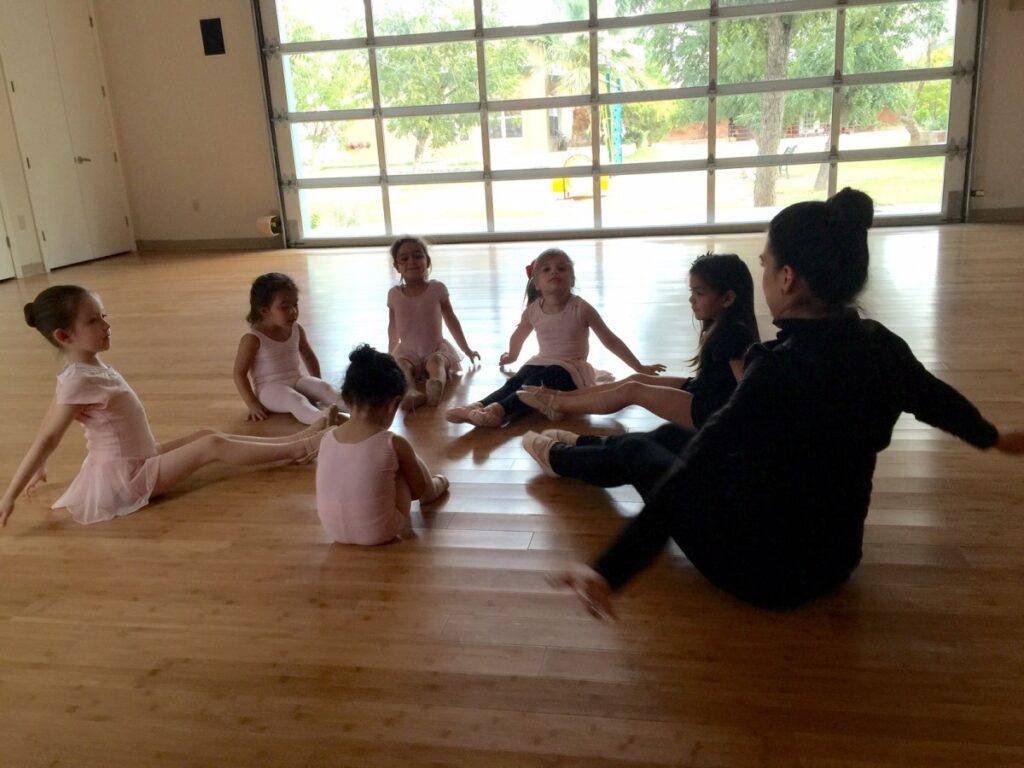
ENROLL YOUR CHILD FOR
2024-2025
Experience our virtual tour and discover our school with us! As we have limited student enrollment, early application is recommended.
Or Call (915) 584-5728

